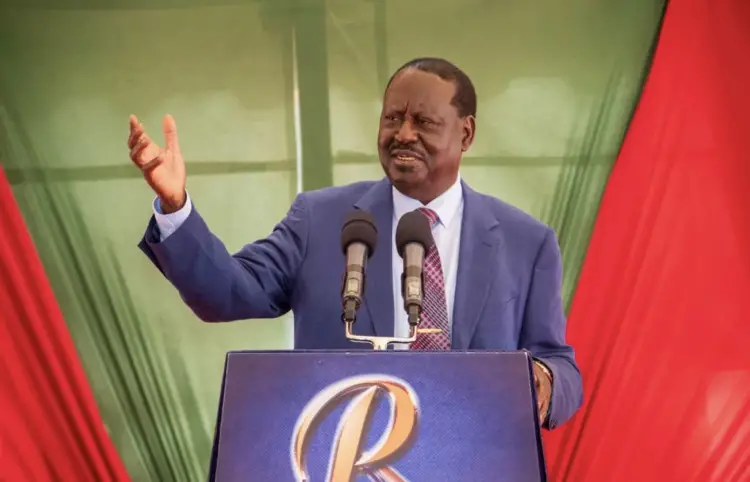There was no gov’t to gov’t oil deal between Saudi and Kenya- Raila contradicts Ruto.
Speaking during a media briefing, Azimio la Umoja leader Raila Odinga revealed that there was no gov’t to gov’t oil deal between Kenya and Saudi Arabia.
He stated,”There was no Government to government oil deal. Kenya did not sign any contracts with Saudi Arabia or the UAE. Only the Ministry of Energy and Petroleum signed a deal with state-owned petroleum companies in the Middle East.”
“Why Ruto chose to characterize the deal as a G-to-G is the first red flag that points to mischief in this deal,” he added.
The opposition leader also questioned if there was a deal, why has the cost of every commodity in Kenya, significantly shot up.
Raila stated,”When Ruto initiated this deal, the US-dollar to Kenya-shilling exchange rate was Ksh.132. Today, six months later, it is Ksh.159 to the dollar,”
“The cost of fuel shot up significantly after the deal. Why have things moved from bad to worse since the deal?”he posed.
Notably, Opposition leader faulted the government for handpicking distributors such as Gulf Energy, Galana Oil Kenya Ltd, and Oryx Energies Kenya Limited to handle local logistics, accusing the “handpicked distributors” of selling oil at nearly twice the price of bulk suppliers.
Raila stated,”We know that in August this year, four months after the deal, the government allowed Oryx Energies to sell oil at prices that had been inflated by 17 per cent,”
“In the Ruto deal, Oryx is the supplier of diesel to other oil marketing companies (OMCs) in the country. The excuse was the delay in discharging fuel at the jetty,” Raila added.
Further, Raila revealed that Uganda decided to look for other Alternatives after realizing that the Kenyan middleman was increasing prices.
He stated,”The change of route by landlocked trading partners will force a number of Kenyan Oil Marketing companies and logistics firms to close shop,”
“Of course, this leads to job losses, loss of foreign exchange, loss of revenue for the country as a result of KPC losing transit share,” he added.
Offering a solution, the opposition leader called for the revoke of government-to-government deals in favor the previous model that featured a competitive procurement process.
He stated,”The open tender system was efficient, accountable, and competitive and offered prices commensurate with the international pricing model.”
